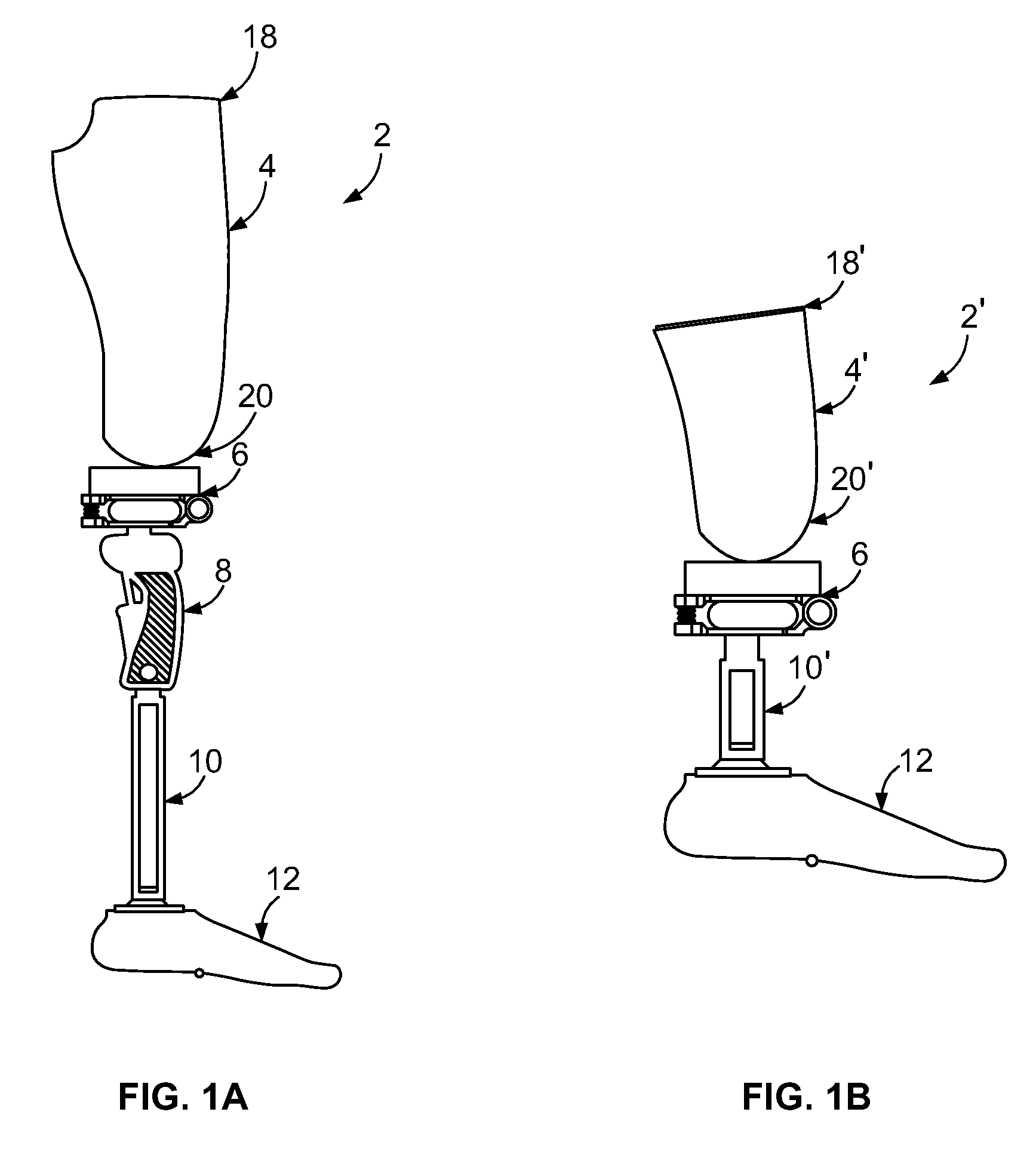Vacuum pump systems for prosthetic limbs and methods of using the same
a technology of vacuum pump and prosthetic limb, which is applied in the field of suspension systems for prosthetic devices, can solve the problems of wasting time, affecting the operation efficiency of the pump system, and the inability of mechanically activated pumps to provide initial air evacuation without effort, etc., and achieves the effect of improving the performance improving the efficiency of the pump system, and improving the size optimization
- Summary
- Abstract
- Description
- Claims
- Application Information
AI Technical Summary
Benefits of technology
Problems solved by technology
Method used
Image
Examples
Embodiment Construction
[0061]Referring generally to FIGS. 1A-4H, it will be appreciated that a vacuum pump system for use in suspension of a prosthetic device from a residual limb of the present disclosure generally may be embodied within numerous configurations of pump systems having a mechanically activated pump and / or a hybrid pump system having a mechanically activated pump and an electrically activated pump. Indeed, while acknowledging that all of the example configurations may include at least one of the example mechanically activated pumps, it is contemplated that a pump system may be incorporated into various prosthetic devices, such as transfemoral and transtibial prosthetic limbs.
[0062]FIG. 1A shows a simplified side view of a prosthetic device or limb 2 in the form of a prosthetic limb for a transfemoral amputee. The prosthetic device 2 generally includes a socket 4, a first example pump system 6, a knee joint 8, a pylon 10 and a prosthetic foot 12. The socket 4 has an upper end 18 that is open...
PUM
 Login to View More
Login to View More Abstract
Description
Claims
Application Information
 Login to View More
Login to View More - R&D
- Intellectual Property
- Life Sciences
- Materials
- Tech Scout
- Unparalleled Data Quality
- Higher Quality Content
- 60% Fewer Hallucinations
Browse by: Latest US Patents, China's latest patents, Technical Efficacy Thesaurus, Application Domain, Technology Topic, Popular Technical Reports.
© 2025 PatSnap. All rights reserved.Legal|Privacy policy|Modern Slavery Act Transparency Statement|Sitemap|About US| Contact US: help@patsnap.com



